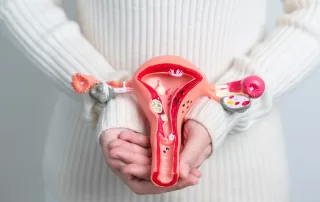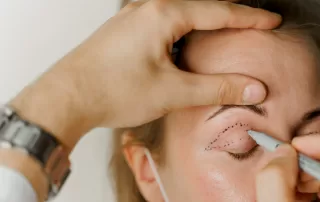The Progesterone Only Pill (POP/Mini-Pill)
Our Service
Welcome to Qoctor’s online doctor service which can provide assessment, advice and treatment for women who require contraception.
Our online doctor will ask you some questions about your health, and may advise a video consultation.
Once you’ve been assessed, treatment may be recommended- you can then opt to have a paper prescription sent to your home or local pharmacy, or medication delivered to an address of your choice, from one of our partner pharmacies.
About the Mini Pill
- The progesterone only pill, sometimes called the “mini pill”, works by thickening the mucus in the cervix, preventing sperm from getting through to fertilise the egg. In some women, it prevents ovulation.
- It must be taken every day during the same 3 hour period.
- There are no inactive or sugar pills, so unlike the combined oral contraceptive pill, there are no breaks.
- It may be a suitable option in women for whom the combined pill is contraindicated.

Qoctor Contraception Guide – what are the different types of contraception?
Scroll down for options
Progesterone Only Pill
(the POP or “mini pill”)
91% effective
The progesterone online pill must be taken every day during the same 3 hour period. There are no inactive or sugar pills. It works by thickening the mucus in the cervix, preventing sperm from getting through to fertilise the egg. In some women, it prevents ovulation.
Combined Oral Contraceptive Pill
( COCP or “the pill”)
91% effective
The combined oral contraceptive pill prevents pregnancy by stopping ovulation. It is taken daily for 21 days in a row, then 7 inactive or “sugar pills” are taken, during which a woman will have a withdrawal bleed like a period. Some women may skip the sugar pills and take the active pills back-to-back for several months at a time to avoid having periods.
Contraceptive vaginal ring
(Nuvaring ®)
91% effective
This is a small flexible plastic ring which a woman can easily insert into her vagina. It stays in place for 3 weeks, and is removed for one week during which a period will occur. A new ring is inserted after that. It contains the same hormones as the combined oral contraceptive pill, but they are released into the vagina instead of the gut.
Contraceptive Diaphragm
88% effective
Diaphragms are soft flexible domes made of silicone or latex, which act as a barrier, preventing the sperm getting to the egg. They are fitted inside the vagina and cover the cervix.
Condoms
82% effective
Popular and widely available, condoms act as a barrier to sperm entering the vagina.
Mirena® Coil (IUS)
99.8% effective
The Mirena Coil or Intra-uterine System (IUS) is a small T-shaped plastic device that is fitted inside the uterus and slowly releases a progesterone hormone. It causes thickening of the mucus in the cervix, so sperm cannot get through. It also prevents a pregnancy attaching to the wall of the uterus. A doctor or nurse must fit it, in a procedure similar to having a pap smear.
The Copper Coil or IUD
99.2% effective
This is a small T-shaped coil made of plastic and copper. A doctor or nurse must fit it, in a procedure similar to a pap smear. The copper kills sperm.
Long-acting contraceptive injection / depo injection
94% effective
This is an injectable progesterone hormone which lasts for 12 weeks.
Qoctor does not offer prescriptions for the long-acting contraceptive injection- if you’d like to discuss this option, we suggest you speak to your GP or family planning clinic
Implanon ® (subdermal implant/rod/bar)
99.95% effective
The implant is about the size and shape of a matchstick. It is inserted under the skin of the upper arm. The doctor will give local anaesthetic injection to numb the area first. It contains the hormone progestogen, which stops the ovary from releasing an egg and thickens the cervical mucus so sperm cannot get through.
Qoctor does not offer prescriptions for the subdermal contraceptive implant/ Implanon- if you’d like to discuss this option, we suggest you speak to your GP or family planning clinic
Tubal Ligation
Tubal occlusion by metal microinsert is 99.8% effective
Tubal ligation is 99.5% effective
This is an operation performed via keyhole surgery by a gynaecologist. The fallopian tubes are clipped or blocked, to prevent the egg getting into the uterus. It is very effective. It involves an operation under a general anaesthetic. It should be viewed as a permanent and irreversible loss of fertility, so you need to be sure you don’t want any more children.
Vasectomy- this option is for the male partner
This is a minor operation carried out under local anaesthetic which involves cutting the tubes that transfer sperm to the penis. It is very effective and should be viewed as a permanent and irreversible loss of fertility. So, a man needs to be absolutely sure he does not want any more children.
FAQs about the Mini Pill
- The mini pill (progesterone only pill) works by thickening the mucus in the cervix, preventing sperm from getting through to fertilise the egg. In some women, it also prevents ovulation.
- It must be taken every day during the same 3 hour period, otherwise pregnancy may occur.. There are no inactive or sugar pills, so unlike the combined oral contraceptive pill, there are no breaks- you take a pill every day.
- Most women get no side effects
- Some women get side effects such as irregular bleeding, headaches, acne, breast tenderness or changes in mood.
If used perfectly it is more than 99% effective, though with typical or “normal” use, it is about 91% effective
Yes, it can be used when breastfeeding, as it does not affect the flow of milk (whereas the combined oral contraceptive pill may reduce breast milk supply)
The POP is not usually the first choice if a woman wants to regulate her menstrual cycle. This is because the POP has different effects in different women- some may get irregular bleeding, others may get no period at all. So, whilst it may work out well for some users, it is not predictable (unlike the combined oral contraceptive pill or COCP, which tends to give a regular bleeding pattern).
Whilst there is evidence that the combined oral contraceptive pill (COCP) appears to cause a slight increase in breast cancer during use and for 5-10 years after stopping, the POP has not been connected to any increase in breast cancer.
Whilst the combined oral contraceptive pill (COCP) is known to increase a woman’s risk of developing a clot, the risk of having a clot when using the POP is much lower.
No, if you wish to become pregnant, there is little or no delay to return to fertility when you stop taking the progesterone only pill.
Health Library
What is a hysterectomy and when is it needed?
What is a hysterectomy and when is it needed? [...]
Eyelid cosmetic surgery
Is Eyelid Cosmetic Surgery Right for You? [...]
How to get the most out of your doctor’s appointment
How to get the most out of your doctor’s [...]



